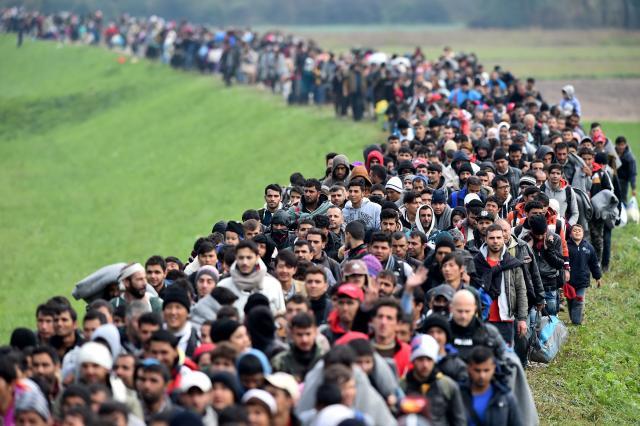More than 190 countries have agreed on a global compact to promote safe and orderly migration and reduce human smuggling and trafficking, culminating lengthy negotiations on the often contentious issue that were boycotted by the US.
UN Secretary-General Antonio Guterres, General Assembly President Miroslav Lajcak and many other supporters hailed the first global document to tackle the migration issue.
Mexican Ambassador Juan Gomez Camacho, co-facilitator of the negotiations, called it "a historic day" after decades of efforts.
The Global Compact for Safety, Orderly and Regular Migration is not legally binding and is to be formally adopted at a ministerial meeting in Marrakesh, Morocco, in December.
But Hungary's foreign minister, Peter Szijjarto, told diplomats after the agreement was adopted by consensus that his government disagrees with key points and will discuss "the possibility of disassociation" from the compact at a meeting on Wednesday.
In September 2016, all 193 UN member states, including the US under President Barack Obama, adopted a declaration saying no country can manage international migration on its own and agreeing to launch a process leading to the adoption of a global compact in 2018.
But last December, the US said it was ending its participation in negotiations on the compact.
A statement from the US Mission to the United Nations said numerous provisions of the declaration were "inconsistent with U.S. immigration and refugee policies" under President Donald Trump.
Louise Arbour, the UN special representative for global migration, said the compact is a framework "to eliminate unsafe, disorderly migration" and an agreement among nations to cooperate. She said most countries agree that well-managed migration produces good results.
The major hurdle was addressing "illegal migration" because many countries just want migrants to go home, she said.
According to a UN estimate, there are 250 million migrants around the world. And a McKinsey study cited by Guterres said that "they make up 3 per cent of global population but contribute 10 per cent of global gross domestic product."


No comments:
Post a Comment